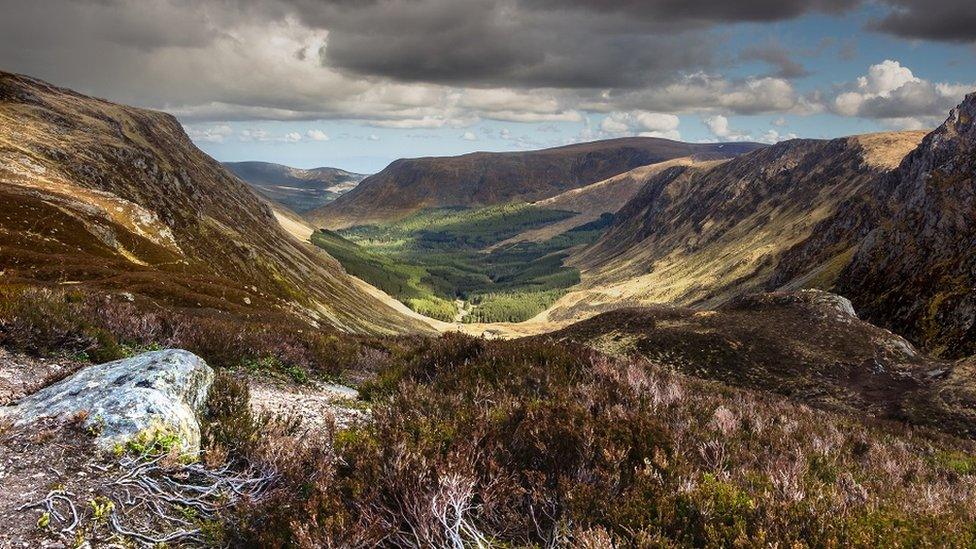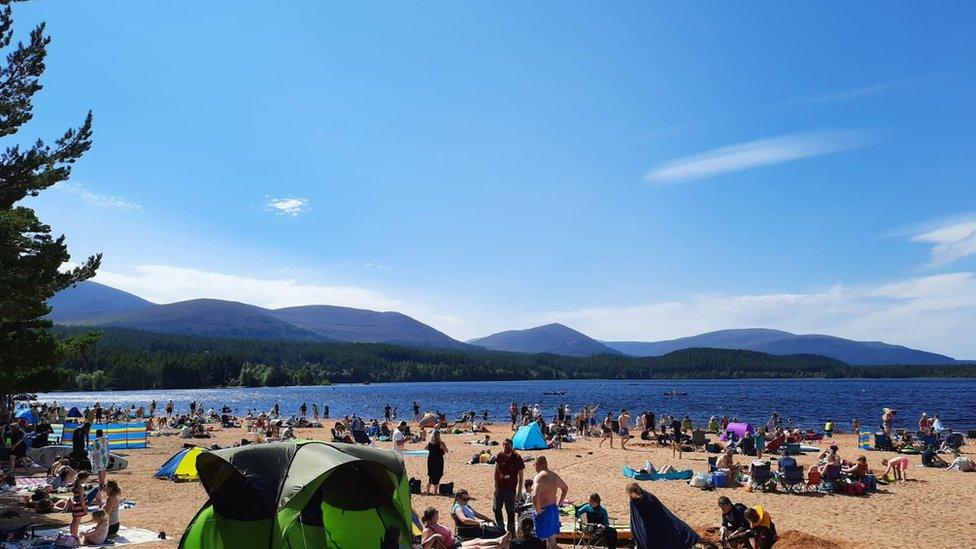£12.5m grant for Cairngorms climate emergency projects
- Published

The Glen Doll in the Angus glens is part of The Cairngorms National Park
Projects to preserve the Cairngorms landscape have won a £12.5m share of National Lottery funding.
The money will help fund more than 20 schemes in The Cairngorms National Park including planting thousands of trees, restoring 3,500 hectares of peatland and a new nature-based dementia centre.
The Cairngorms National Park Authority (CNPA) also plans to develop an electric bike network around the park.
It is hoped the 23 projects can be completed by the end of the decade.
The money will go towards a series of projects aimed at tackling the climate emergency and delivering a "wellbeing economy".
Cairngorms is the largest national park in the UK and home to 25% of all threatened and rare species, such as capercaillie and golden eagles.
The CNPA wants to increase woodland cover in the park by 1,000 hectares by 2028 and also develop more segregated walking and cycling routes around Aviemore, the park's busiest town.

Projects will encourage sustainable tourism to national park attractions such as Loch Morlich
Xander McDade, convener of the CNPA, which submitted the National Lottery funding bid along with 45 local community groups, said: "We believe that it is only by communities coming together that we can tackle the climate emergency and nature crisis.
"This funding allows us to take forward critical work in communities and landscapes right across the national park."
The National Lottery Heritage Fund has awarded £50m to five projects across the UK.
Caroline Clark, who is in charge of the fund's strategy across Scotland, told the BBC's Good Morning Scotland programme the pandemic had underlined the importance of outdoor space.
"This project, Cairngorm 2030, we feel is really ground breaking in terms of the way it's looking holistically at the communities and life in the Cairngorms National Park, but also really pushing the essential climate change work that has to happen in that area to deliver Net Zero," she said.
An element of the project is citizens' assemblies that will give a voice to both residents and visitors to the park in shaping its future.
"Reflecting on the last year-and-a-half of the pandemic, I think we're all really appreciative of the need for green space and connecting with the environment - and the national park is a really special place to do that."